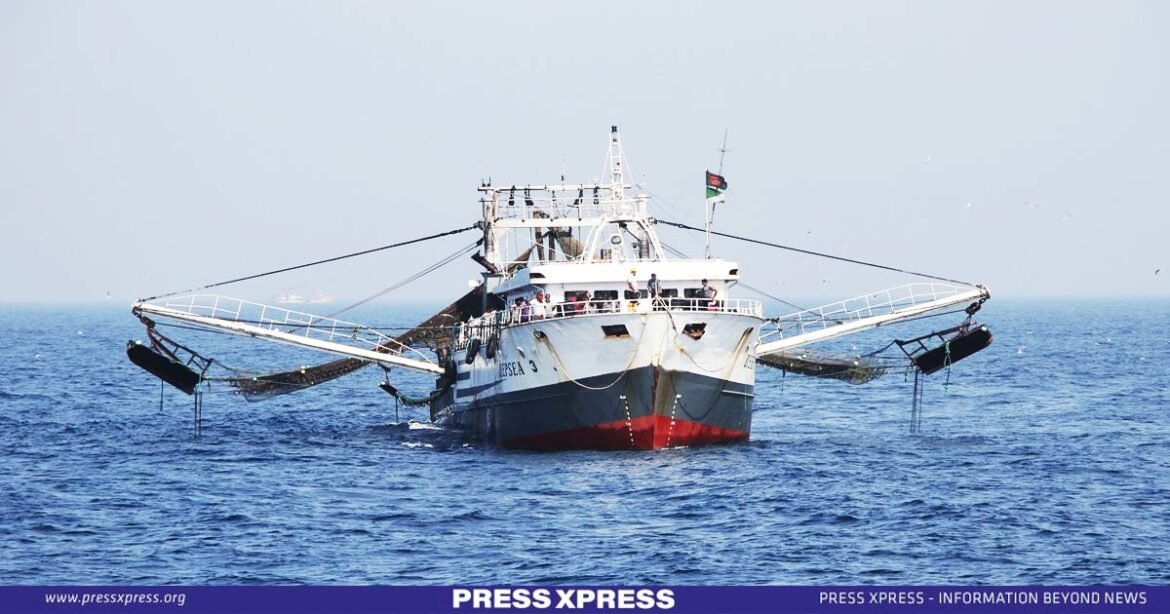Key highlights
- The ‘Blue Economy’ signifies the sustainable use of marine resources
- Blue Economy measures potentially surpassing ten times the national budget
- Aiming for 100 billion Australian dollars by 2025 from the marine sector
- Oceans contribute three to five trillion dollars annually to the global economy
The concept of the ‘Blue Economy’ has emerged as a beacon of hope for nations seeking prosperity while fostering environmental sustainability. This economic paradigm advocates for the responsible utilization of marine resources, presenting a resolution to pressing environmental challenges. The focus lies on extracting and utilizing oceanic resources in a manner that not only bolsters economic activities but also nurtures the vitality and well-being of the ocean ecosystems. At the core of this economic model are the ocean, sea, and coast.
You can also read: Virtual Payments Unlock Future of Online Apparel Marketplace
The World Bank plays a pivotal role in delineating the blue economy, emphasizing dual perspectives. Firstly, it seeks to ensure economic prosperity, an enhanced quality of life, and improved health through the sustainable exploitation of oceanic resources. Secondly, the World Bank aspires to generate employment opportunities while simultaneously safeguarding the health and biodiversity of the ocean. These two facets form a symbiotic relationship, where the well-being of the economy and the ocean are mutually dependent.
Bangladesh Lags in Maritime Exploration Contracts
The current ‘Blue Economy Cell’ functions as a temporary administrative body without legal authority, rendering its decisions non-binding. The temporary nature has led to a lack of financial allocation, prompting a 2017 parliamentary committee recommendation to replace it with a legally empowered authority, which remains unimplemented. Discussions persist on establishing a Ministry of Sea to address coordination challenges in the vast marine area, critical projects, and potential opportunities.

In contrast, nations like Myanmar and India, post the 2012 resolution of their maritime dispute, have actively pursued gas exploration, achieving notable progress. Myanmar has harnessed seafood, discovered new gas reserves, and initiated extraction near Bangladesh’s border, meeting domestic needs and exporting to China. India, too, has identified substantial gas reserves in the Bay of Bengal, conducting regular extractions.
However, Bangladesh, despite delineating sea limits into 26 divisions, has been sluggish in signing exploration contracts with foreign companies. By 2019, only four blocks had signed contracts, and no excavation had commenced, leaving 22 blocks untouched. Limited progress has been reported in 2022, with surveys indicating significant gas hydrate reserves in the Bay of Bengal.
Global Significance of the Ocean Economy
European countries with sub-oceanic territories stand to earn 500 billion euros annually from the maritime economy, constituting 10 percent of their GDP. Indonesia’s national income is significantly bolstered by the blue economy, with recent measures potentially surpassing ten times the country’s national budget, generating employment for 75,000 people and an annual revenue of USD 115 million. Australia, earning 47.2 billion Australian dollars annually from its marine sector, aspires to reach 100 billion dollars by 2025. Singapore, where 40% of the GDP is dependent on the sea, and China, with 10 percent of the total GDP from the maritime economy, underscore the global economic importance of the ocean.
Seafood, a primary resource derived from the oceans, directly or indirectly supports the livelihoods of 10-12 percent of the world’s population. Annually, the ocean yields an impressive 70 to 75 million tons of fish, with 29 million tons designated for human consumption. The economic activity surrounding the oceans reaches staggering figures, totaling three to five trillion dollars annually. Marine fish, plants, and animals contribute significantly, providing 15 percent of the protein intake for 4.3 billion people globally. Oceans, covering 72% of the Earth, constitute approximately 95% of the biosphere.
Efforts are underway to extract these substances from the sea, contributing to 32% of the world’s total hydrocarbon supply derived from marine sources. Furthermore, 90 percent of global commercial transport relies on maritime routes.

Bangladesh’s Maritime Possessions and Challenges
In the case of Bangladesh, its sea area spans 1 lakh 18 thousand 813 square kilometers, constituting approximately 82 percent of the country’s total area. A landmark judgment by the International Court of Arbitration (PCA) on March 14, 2012, granted Bangladesh possession of over 118 thousand 813 square kilometers of sea area in a dispute with Myanmar. Subsequently, on July 8, 2014, Bangladesh secured rights to 19 thousand 467 square kilometers out of approximately 25 thousand 602 square kilometers in the disputed maritime boundary between Bangladesh and India.
Recognizing the importance of the blue economy, the Bangladesh government has recently embraced the Delta Plan 2100. This comprehensive initiative incorporates five strategies aimed at unlocking the full potential of the blue economy to meet the objectives outlined in the Sustainable Development Goals (SDGs). Effective utilization of the oil, gas, fisheries, port expansion, and tourism sectors has the potential to yield substantial economic gains, with Bangladesh standing to earn billions annually.
Conclusion
As nations globally navigate the vast potential of the blue economy, it is essential to strike a harmonious balance between economic growth and environmental preservation. Bangladesh, with its extensive maritime territories, stands at a crucial juncture, poised to harness the benefits of the oceanic wealth. The ongoing efforts towards sustainable marine resource management will play a pivotal role in shaping the future of the blue economy, ensuring a prosperous and ecologically resilient world for generations to come.


